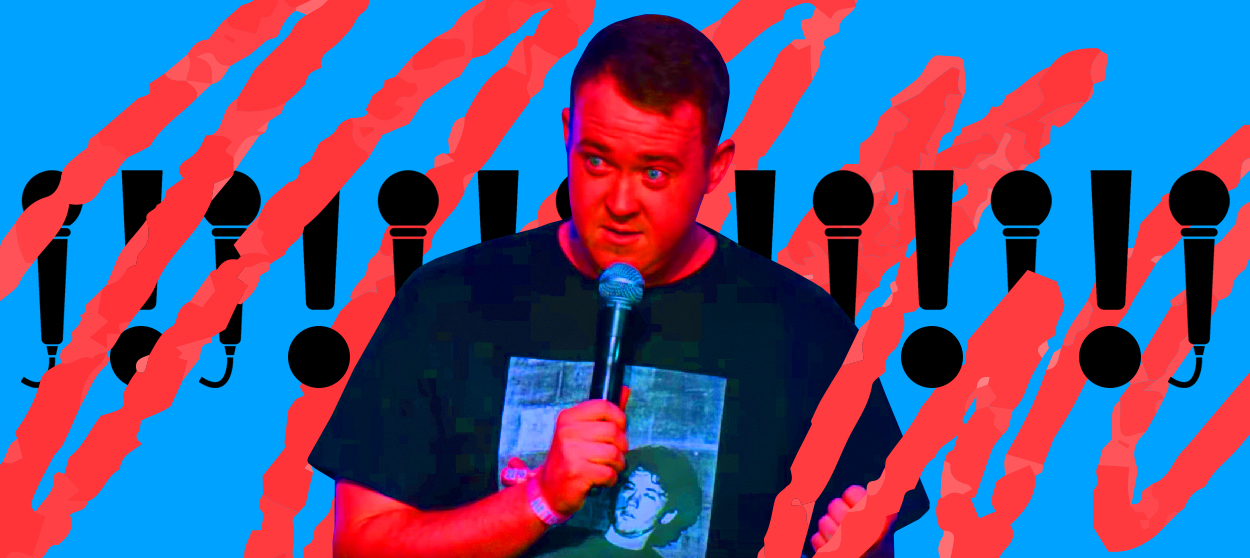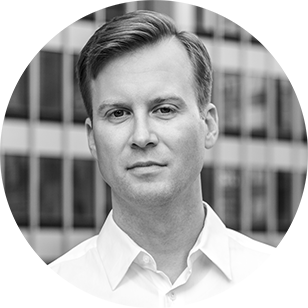Shane Gillis and the problem of 'pushing boundaries'
There's nothing funny about reinforcing bigotry


A free daily email with the biggest news stories of the day – and the best features from TheWeek.com
You are now subscribed
Your newsletter sign-up was successful
Saturday Night Live has fired one of its newest cast members before he even had a chance to film his first episode on the legendary television show. On Monday, SNL announced it was letting go Shane Gillis, a 31-year-old stand-up comedian, after racist and homophobic slurs Gillis had made in the past began circulating on the internet. A spokesperson for SNL called Gillis' remarks "offensive, hurtful, and unacceptable" and claimed NBC had been unaware of their existence when it hired Gillis.
In his own statement shortly after, Gillis accepted the show's decision before offering "to apologize to anyone who's actually offended by anything I've said." While that non-apology seems fairly routine these days, Gillis' example highlights the persistent problem of allowing offensiveness to pass as comedy, a habit with especially dark consequences in the age of Trump. And even though he lost his job, Gillis' hiring, however brief, also points to SNL's continual failure to adequately diversify its cast and the disastrous implications of not doing so.
That latter point was cruelly underscored by what should have received more attention when NBC revealed that the three new cast members included Bowen Yang, the show's first Chinese-American performer. But that historic development was quickly overshadowed by the Gillis controversy, a sort of twisted mirroring of how SNL has often sidelined its non-white actors.
The Week
Escape your echo chamber. Get the facts behind the news, plus analysis from multiple perspectives.

Sign up for The Week's Free Newsletters
From our morning news briefing to a weekly Good News Newsletter, get the best of The Week delivered directly to your inbox.
From our morning news briefing to a weekly Good News Newsletter, get the best of The Week delivered directly to your inbox.
In his statement responding to SNL's decision, Gillis defended himself as a "comedian who pushes boundaries," a notion as laughable as it is unoriginal. Comedy thrives on saying something new, so it seems significant how many comedians are retreading the same tired lines when their jokes land them in the hot seat. From Ricky Gervais to Kevin Hart to Dave Chappelle, the comedy world has recently abounded with male performers all arguing that their humor isn't offensive, but instead transgressive. But what exactly is new or noteworthy about comedy that depends on longstanding bigotries and overworked prejudices? What is so brave or heroic about telling some of the oldest jokes in the book?
No doubt, comedy often works best when it skewers society's sanctimonies and punctures its pieties. And good comedy can often be cruel. But it matters where that cruelty is directed and who is being made uncomfortable. Comedy that punches down isn't just easy. It's also dangerous.
That danger has been starkly exposed in recent years. As Tauriq Moosa pointed out in the Guardian back in 2017, neo-Nazis have seized on humor as one of the best ways to spread their hateful ideology. The alt-right, with its internet memes and satire, understands that comedy can work to both normalize unacceptable ideas and also muddle the intent behind them. Offended by Twitter gifs showing Jews being shoved into ovens? You just didn't get the joke, man! By decrying the "political correctness" that has supposedly spoiled all the fun of contemporary life, alt-right extremists have worked to mainstream odious and violent ideas in part by distracting Americans with talk of "snowflakes" and of a culture that is all-too-easily offended.
Shane Gillis is no alt-right messenger, of course. But his brand of "offense comedy" helps smooth the entry of more hate disguised as humor into American life.
A free daily email with the biggest news stories of the day – and the best features from TheWeek.com
It also doesn't push any boundaries, as he's claimed, but instead redraws some of the nation's deepest divisions. In diminishing Asians, or LGBTQ persons, or Jews — some of the people most vulnerable in our current moment — Gillis and comedians like him are only abetting the very real discrimination faced by those same groups. When Gillis or other comics complain they are suffering from the forces of political correctness, such as former SNL performer Rob Schneider tweeting that Gillis had been "subject to the intolerable inquisition," they are doing the bigots' bidding, recasting themselves as the real victims rather than those whom they offend or harm. You can draw a straight line from comedians griping they can't make fun of immigrants or gays to poll results that show a majority of Americans believe white people are "under attack." This aggrieved identity fueled Trump's rise to power. It now undergirds his meanest efforts.
As Adam Serwer has argued in The Atlantic, cruelty is the point of the Trump presidency. But the cruelty of this moment can become even harder to recognize when some of its clearest expressions are written off as harmless jokes. That's why SNL had to fire Gillis and why it also must do better in bringing more diverse voices to its stage. If comedy is built on observation, it matters greatly who is doing the observing and what is being observed. In 2019, the failure to recognize that basic truth of comedy is finally no laughing matter.
Neil J. Young is a historian and the author of We Gather Together: The Religious Right and the Problem of Interfaith Politics. He writes frequently on American politics, culture, and religion for publications including The New York Times, The Atlantic, the Los Angeles Times, HuffPost, Vox, and Politico. He co-hosts the history podcast Past Present.
-
 Corruption: The spy sheikh and the president
Corruption: The spy sheikh and the presidentFeature Trump is at the center of another scandal
-
 Putin’s shadow war
Putin’s shadow warFeature The Kremlin is waging a campaign of sabotage and subversion against Ukraine’s allies in the West
-
 Media: Why did Bezos gut ‘The Washington Post’?
Media: Why did Bezos gut ‘The Washington Post’?Feature Possibilities include to curry favor with Trump or to try to end financial losses
-
 The billionaires’ wealth tax: a catastrophe for California?
The billionaires’ wealth tax: a catastrophe for California?Talking Point Peter Thiel and Larry Page preparing to change state residency
-
 Bari Weiss’ ‘60 Minutes’ scandal is about more than one report
Bari Weiss’ ‘60 Minutes’ scandal is about more than one reportIN THE SPOTLIGHT By blocking an approved segment on a controversial prison holding US deportees in El Salvador, the editor-in-chief of CBS News has become the main story
-
 Has Zohran Mamdani shown the Democrats how to win again?
Has Zohran Mamdani shown the Democrats how to win again?Today’s Big Question New York City mayoral election touted as victory for left-wing populists but moderate centrist wins elsewhere present more complex path for Democratic Party
-
 Millions turn out for anti-Trump ‘No Kings’ rallies
Millions turn out for anti-Trump ‘No Kings’ ralliesSpeed Read An estimated 7 million people participated, 2 million more than at the first ‘No Kings’ protest in June
-
 Ghislaine Maxwell: angling for a Trump pardon
Ghislaine Maxwell: angling for a Trump pardonTalking Point Convicted sex trafficker's testimony could shed new light on president's links to Jeffrey Epstein
-
 The last words and final moments of 40 presidents
The last words and final moments of 40 presidentsThe Explainer Some are eloquent quotes worthy of the holders of the highest office in the nation, and others... aren't
-
 The JFK files: the truth at last?
The JFK files: the truth at last?In The Spotlight More than 64,000 previously classified documents relating the 1963 assassination of John F. Kennedy have been released by the Trump administration
-
 'Seriously, not literally': how should the world take Donald Trump?
'Seriously, not literally': how should the world take Donald Trump?Today's big question White House rhetoric and reality look likely to become increasingly blurred
